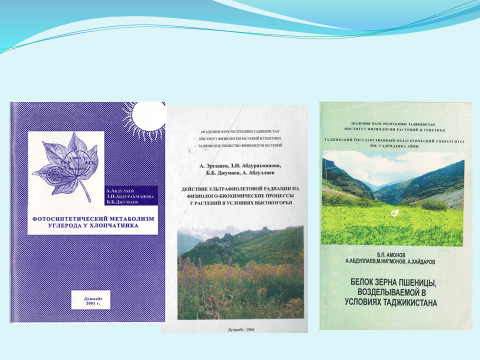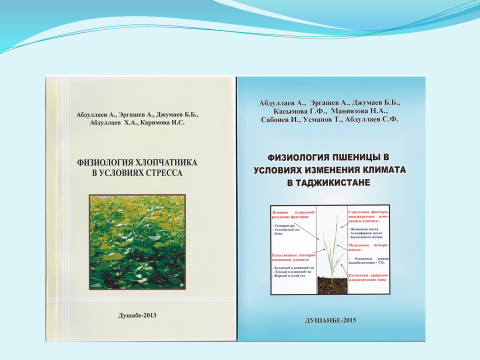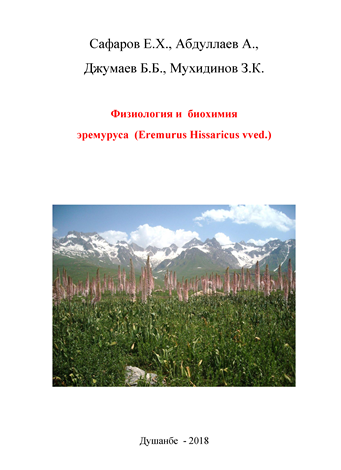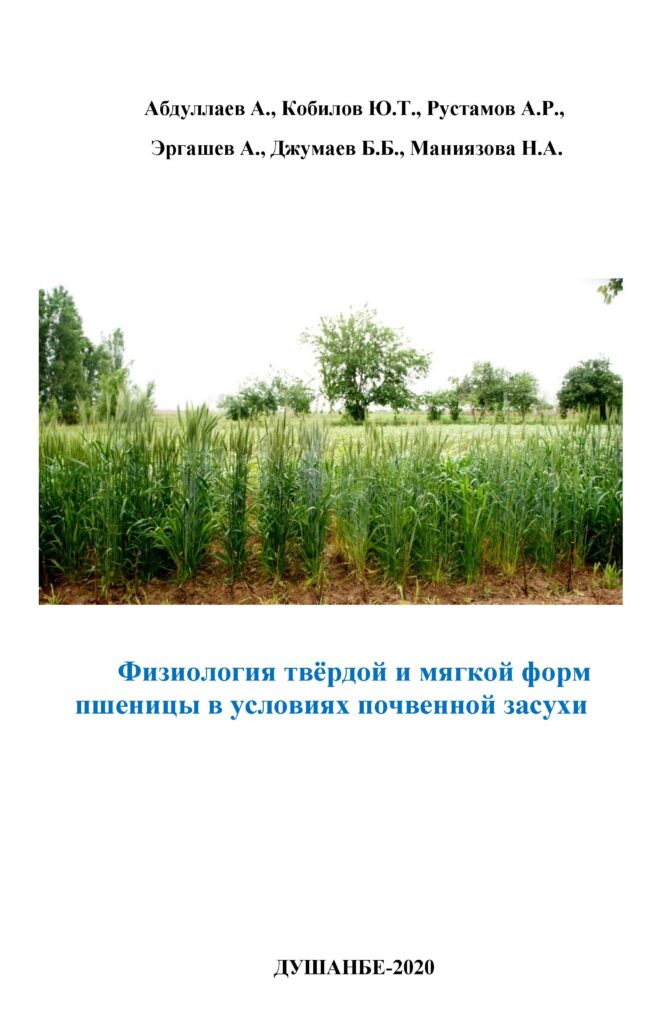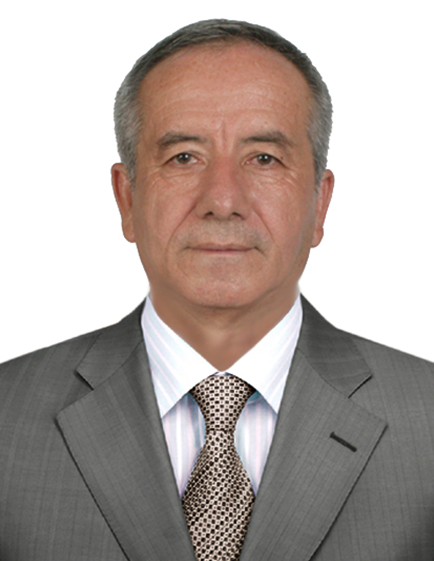
The photosynthesis laboratory was organized in 1961 on the basis of the Institute of Botany. In 1964, by decision of the Government, the Institute of Plant Physiology and Biophysics was organized, and in the same year one of the first laboratories at the Institute was established – the Laboratory of Biochemistry of Photosynthesis. Academician of the National Academy of Science, Professor Yu.S. Nasyrov, who led until 1982. In 1982, the Laboratory of Molecular Enzymology became part of it (Yu.D. Akhmedov was the head of the laboratory).
At the dawn of the development of the Institute, well-known scientists in our Republic and abroad worked in the laboratory, such as Yu.S. Nasyrov., Shokirova S.V., Nikitina A., Boboeva T.N., Kichitov V.K. Niyazmukhamedova M.B. , Milovanova S. and others.
Direction of the laboratory:
The concentration of the laboratory’s efforts is aimed at solving the fundamental problems of modern biology (photosynthesis, metabolism and genetic regulation of plant life processes).
The main direction of the laboratory’s work is the study of photosynthesis and photosynthetic carbon metabolism in higher plants. Photosynthesis and photosynthetic metabolism of CO2 in different types of plants are studied under various combinations of environmental conditions, including exposure to extreme conditions, a variety of pathways for the biosynthesis of photosynthesis products and adaptation of photosynthetic carbon metabolism to climatic conditions. The Laboratory of Biochemistry of Photosynthesis in Central Asia has for many years been one of the scientific centers dealing with the problems of increasing the intensity of photosynthesis as an important component of the production process. In addition, scientific research in the laboratory is carried out in the field of studying photosynthesis and photosynthetic conversion of CO2 in various types of plants under various combinations of environmental conditions, including the effects of extreme conditions, studying the diversity of pathways for the biosynthesis of photosynthesis products and adapting photosynthetic carbon metabolism to the climatic conditions of high mountains.
Currently, the work of the staff is mainly aimed at studying the impact of global climate change on the physiological and biochemical processes in plants in order to regulate the vital activity of plants in unfavorable conditions for them.
GRANTS
- “Influence of UV radiation and CO2 level on the vital activity of higher plants”, (1996-1998), also ISESCO – “Influence of anthropogenic factors on plant communities” (2003-2005)
- ISTC grant on the topic: “Study of the impact of climate change on the growth, development and productivity of wheat in Tajikistan” (T-1635)
- Laboratory staff actively participated in the implementation of projects funded by the ISTC at the Institute of Chemistry. IN AND. Nikitin Academy of Sciences of the Republic of Tatarstan T-1419, T-1420, T-2148 and T-1436 (projects of Mukhidinov Z. and Isabaev M.), also a joint project T-2148
- Joint project “New Strategies for the System of Cultivation of Climate Adapted Legumes in Tajikistan” (SCALA) between the Institute of Plant Botany, Physiology and Genetics (Dushanbe) and the Leibniz Center for Agricultural Landscape Research (ZALF)
- Regional project “Department of Irrigated Land Resources Exposing Central Asia to Drought and Salinization in Conditions of Climate Change (BIOVAT)”
- REF-5024 (IAEA Project) Improving the productivity and resilience of key food crops in Europe and Central Asia to climate change
SCIENTIFIC COOPERATION
- Institute of Chemistry of the National Academy of Sciences of Tajikistan named after V.I. Nikitin
- Leibniz Center for Agricultural Landscape Research (ZALF)
- Agricultural Academy, Gansu Province, China
RESULTS ACHIEVED
- A set of methods for modeling the conditions of possible climate change (under different scenarios of the combination of the main climate-forming factors) in special cultivation facilities for growing wheat, in which the necessary microclimate regime was created, was developed and tested.
- The influence of greenhouse gases on the dynamics of growth and development of wheat has been studied.
- The physiological parameters of wheat in special cultivation chambers were studied.
- The influence of greenhouse gases on the productivity and quality of wheat grain has been studied.
- A mathematical model of wheat has been created under the conditions of global warming.
- The effects of elevated temperature, atmospheric and soil drought, and soil salinity on the growth, development, and physiological and biochemical characteristics of leguminous crops have been studied.
STAFF LABORATORY
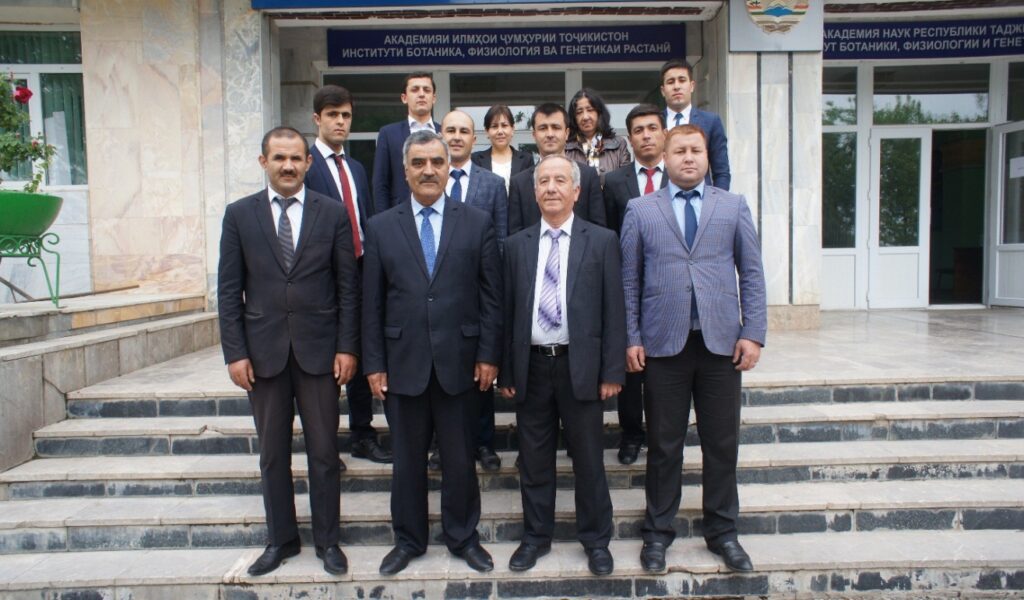

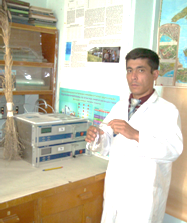
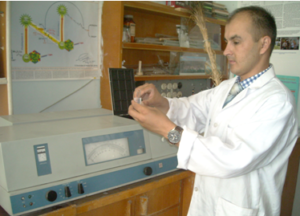
Leading Researcher
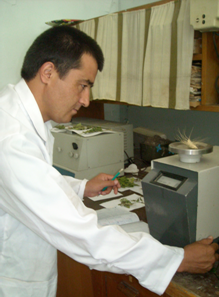
Leading Researcher
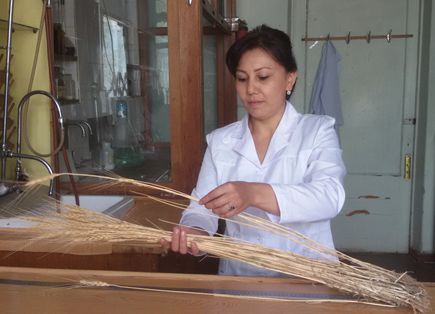
Junior Research Fellow
BOOKS
